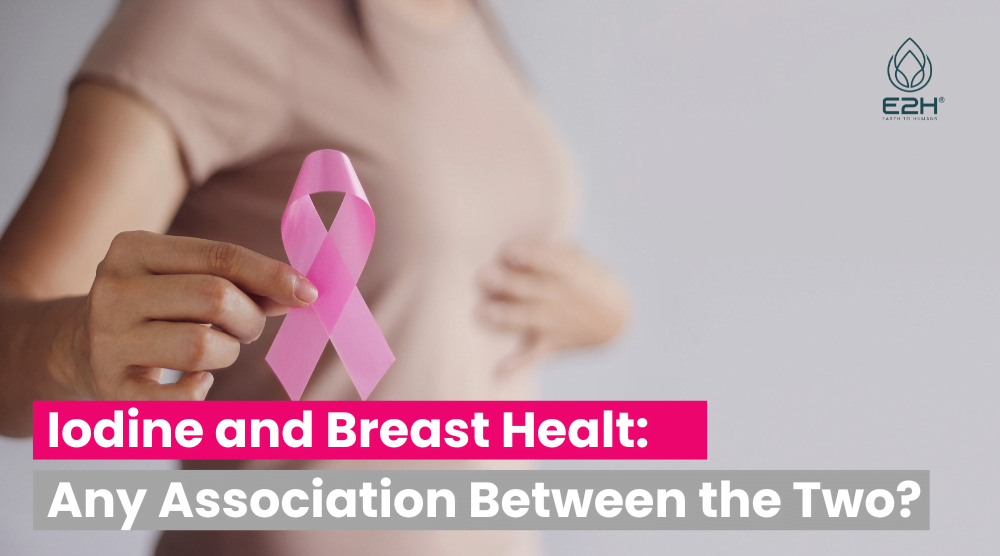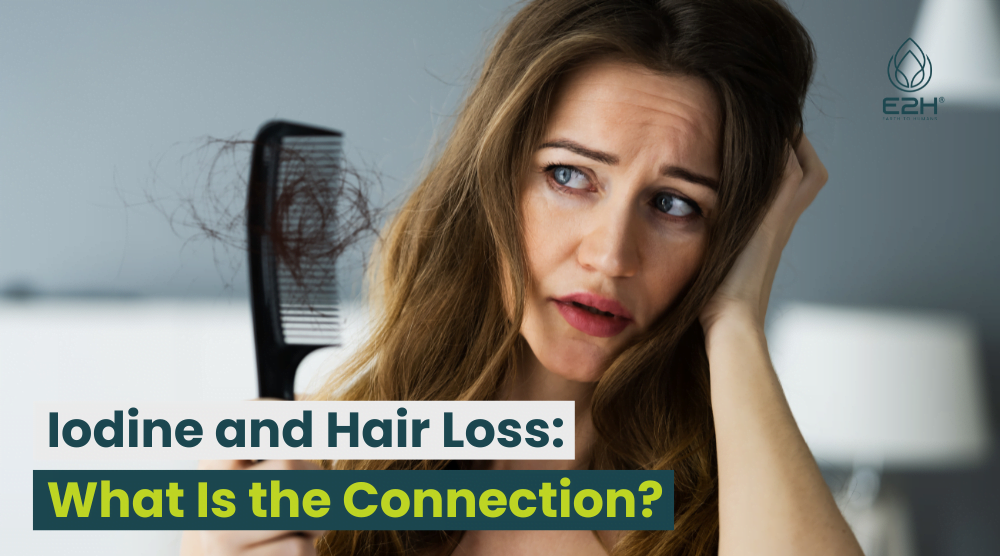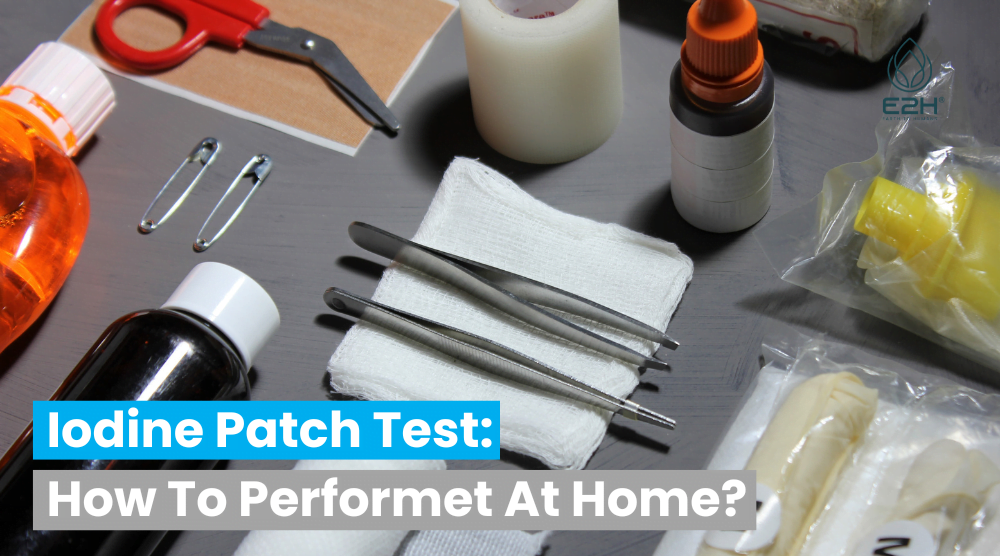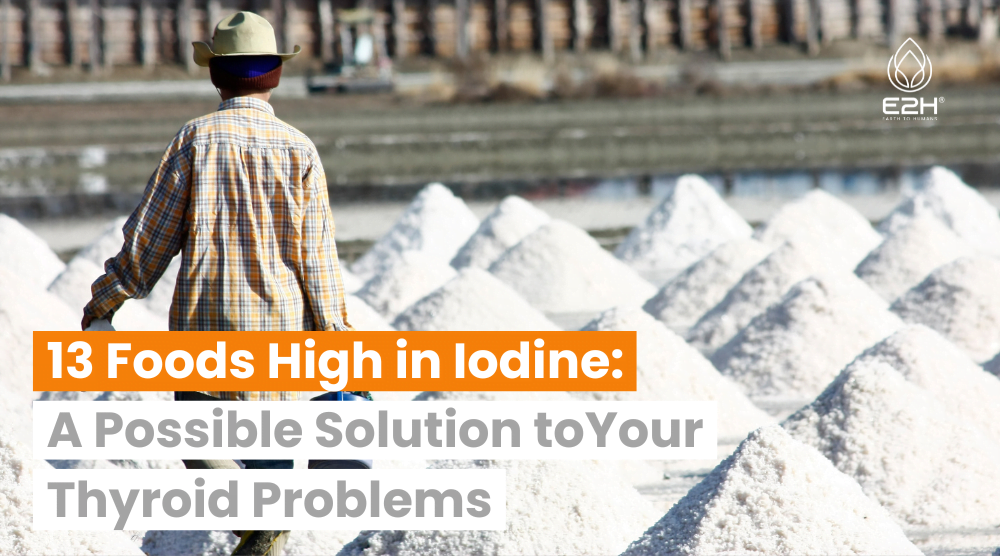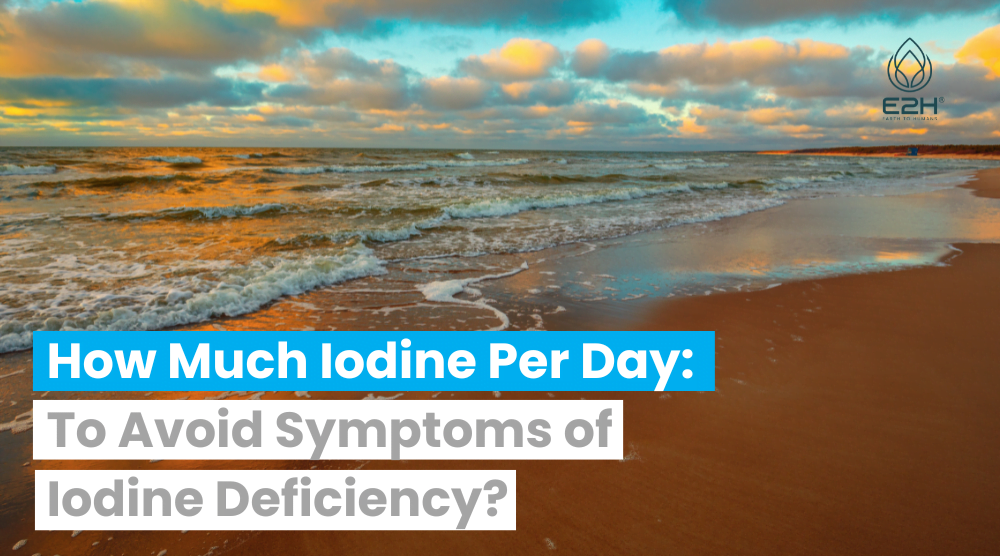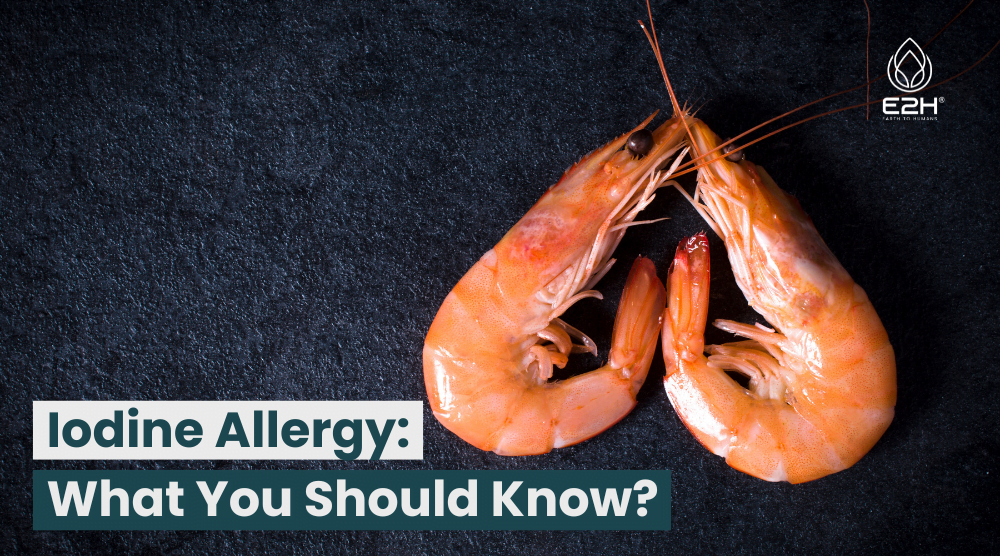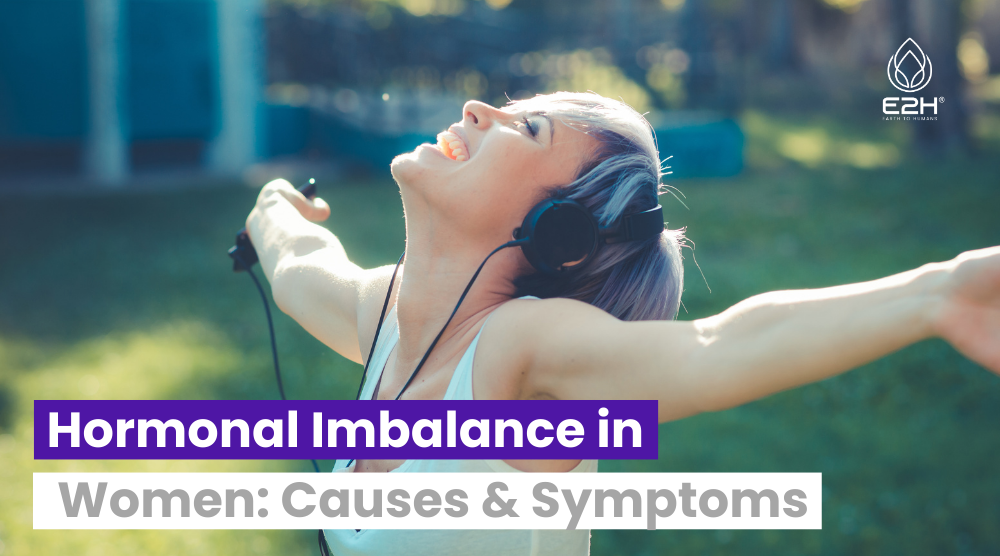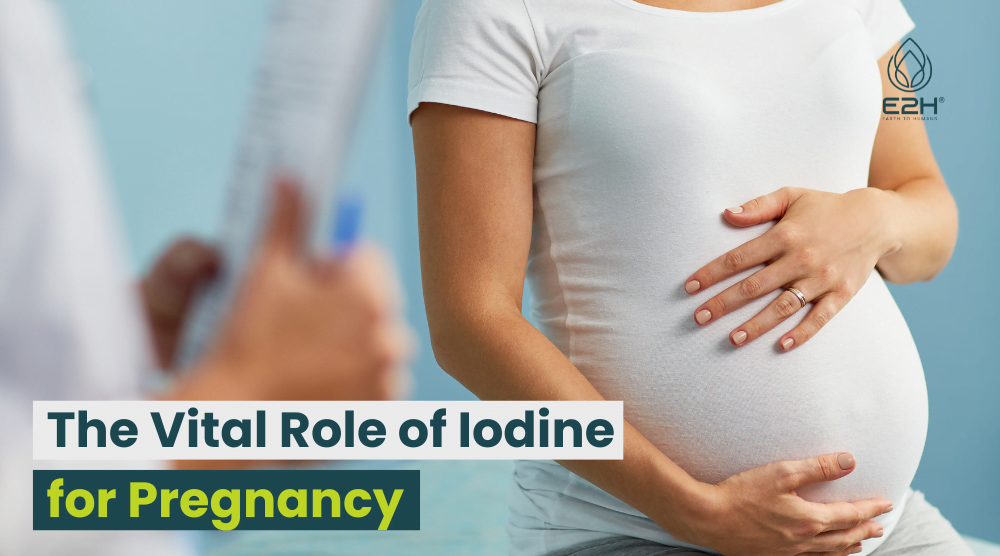Association Between Iodine and Breast Health: Iodine is an essential trace element required by the body to make enough thyroid hormones, which are crucial for the normal development of the human body. Almost 70- 80% of the iodine in the thyroid gland is distributed to various body organs, including ovaries, muscles, and blood.
Iodine: an effective nutritional strategy for women’s health
Iodine is an essential element, a deficiency of which can lead to hypothyroidism. The problem is more common among women than males. Therefore, women should take care of their bodies by adding liquid iodine supplementation to their diet. In women, 0.25 to 3mg of iodine, either in potassium iodide or molecular iodide form, is required for normal breast health.
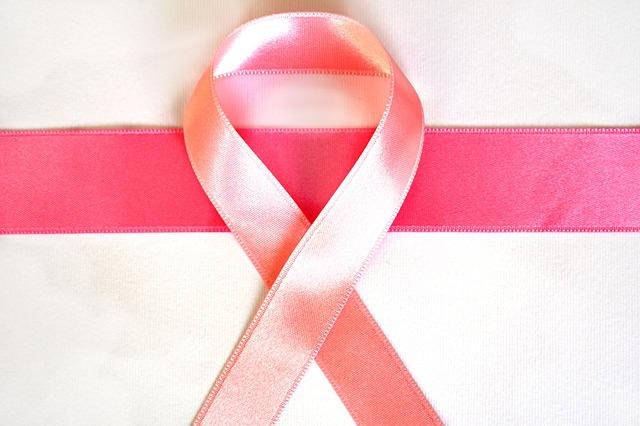
Molecular iodide is preferred over potassium iodide because it is absorbed more quickly in breast tissues than in the thyroid. However, you should be precautions while using the supplements as excess iodine intake can harm thyroid health [1].
However, to summarize, In women, iodine can be an effective nutritional strategy for women’s health conditions, including [2]:
- Breast cysts and pain
- Ovulation pain
- Ovarian cysts prevention
- PCOS/ Irregular periods
- Fibroids prevention
- Heavy periods
- Perimenopause and Endometriosis
- Premenstrual mood symptoms.
Breast signs of iodine deficiency
With several other iodine deficiency symptoms, breast tenderness can be a reliable sign to assess iodine deficiency in women. Other common symptoms include a fast heartbeat, cold hands and feet, pale skin, shortness of breath, headache, dizziness, extreme fatigue, weakness, chest pain, soreness of your tongue, and brittle nails.

Does Iodine deficiency lead to Breast cancer?
According to one study, iodine deficiency is considered an essential causative agent in the development of breast cancer [3]. In contrast, dietary iodine is believed to play a protective role in protecting the breast against breast cancer.
On the other hand, iodine deficiency leads to the up-regulation of estrogen and its related genes, leading to abnormal growth of breast cells and tumor development in breast tissue and breast cancer.
Iodine deficiency is linked with fibrocystic breast disease, which can be treated effectively or prevented in women by taking iodine supplements. Women having fibrocystic breast disease have breast tenderness before their periods [4]. Fibrocystic breast disease affects almost 50% of females during puberty. The cystic disease is a benign breast disease that can lead to breast cancer in a small fraction of patients.
However, the effect of iodine supplementation on breast cancer survival rates or breast cancer risk is still poorly known.
How much iodine intake daily for healthy breast tissue?
Here you will learn the average dose of iodine for healthy breast tissue and to prevent thyroid diseases.
Note: Dietary iodine does not much influence autoimmune thyroid disease.
Molecular iodide is more suitable for breast health as compared to potassium iodide. Milligram dose means 1-3 mg (1000-3000 mg) of iodine, preferably in molecular iodine (I2) form, because it’s not just better you’re your breasts but also safer for the thyroid due to its least absorbance. This dose is enough to keep your breasts healthy.
What foods to eat?
The following food items are considered essential sources of dietary iodine:
- Seafood contains 10 – 190 mg per 100 grams.
- Egg yolks contain 24 mg per yolk.
- Grass-fed butter grown on iodine-rich soil is also an essential source of dietary iodine.
- Iodized salt contains 400 mg per teaspoon.
- Seaweed or kelp have 2 – 800 mg per 100 grams. But kelp, along with iodine, also contains bromine, which prevents iodine uptake and may include many toxic metals that can be harmful.
- Plant-based foods, including mushrooms and leafy green vegetables grown on iodine-rich soil, can also serve as a good source of iodine.
- Yogurt and milk
Importance of liquid iodine supplementation
Liquid iodine supplementation is essential for the proper functioning of the thyroid and for preventing thyroid cancer. It also helps to avoid the risk of getting goiters. During pregnancy, iodine supplementation helps in neurodevelopment [6].
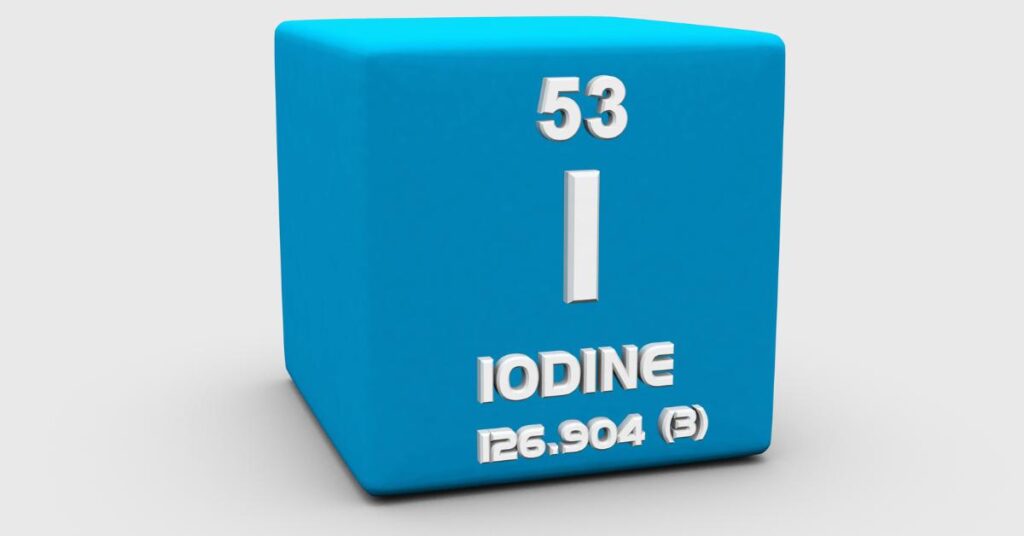
It is also essential for healthy brain development among children. In women, fibrocystic breast cancer can be treated with liquid iodine supplementation. One larger dose of iodine is equivalent to a large sea vegetable meal that helps to excrete all toxic chemicals through urine from the thyroid and other iodine-storing tissues [7].
Iodine and Thyroid function: What precautions to take?
Iodine is essential for ensuring the proper function of the thyroid. It usually helps regulate thyroid hormone production, including thyroxine (T4) and triiodothyronine (T3). Therefore, enough iodine is required to prevent decreased thyroid hormone production and hypothyroidism[8].
On the other hand, too much iodine in your diet can increase your risk of getting thyroid diseases like Hashimoto’s disease, Graves’s disease, thyroid cancers, and thyrotoxicosis. For these reasons, it is recommended that people who suspect having any issues related to iodine should consult their doctor before taking any iodine supplementation.
FAQs
Is there any association between iodine and breast health?
Yes, there is a connection between iodine and breast health. Adequate iodine levels are important for proper breast tissue development and function. Iodine deficiency has been linked to various breast-related issues, including fibrocystic breast disease and an increased risk of breast cancer.
How does iodine impact breast health?
Iodine plays a crucial role in maintaining breast tissue health. It helps regulate hormone balance, supports the structure of breast tissue, and aids in the prevention of fibrocystic changes. Iodine also has anti-inflammatory and antioxidant properties, which can contribute to overall breast health.
How can I ensure sufficient iodine intake for breast health?
To maintain adequate iodine levels, it is recommended to consume iodine-rich foods such as seaweed, seafood, dairy products, and iodized salt. However, it’s essential to consult with a healthcare professional before making any significant dietary changes or taking iodine supplements to ensure proper dosage and individualized guidance for your specific needs. Regular breast self-exams and screenings are also crucial for early detection and monitoring of any potential breast health issues.
Conclusion
In conclusion, iodine is an essential element having the same health benefits. It is required not just for the proper functioning of the thyroid gland but also to play a significant role in women’s breast health. Moreover, normal levels of iodine help down-regulate estrogen-regulated genes and help to improve breast health.
Therefore, you should take iodine supplements if you are not getting enough iodine from dietary sources. An incredible example of that is a liquid supplement containing the required amount of potassium iodine. Liquid supplements are better as they give you a higher absorption rate. Adding this to your diet can be effective management of your issues related to your breast.
References:
1. How Iodine Protects Breasts • Lara Briden – The Period Revolutionary [Internet]. Lara Briden – The Period Revolutionary. 2020 [cited 2022 Oct 15]. Available from: https://www.larabriden.com/how-iodine-protects-breasts/
2. Briden L. Why I Prescribe Iodine for Breast Pain, Ovarian Cysts, and PMDD [Internet]. Lara Briden – The Period Revolutionary. 2021 [cited 2022 Oct 15]. Available from: https://www.larabriden.com/iodine-for-breast-pain-ovarian-cysts-and-pms/
3. Rappaport J. Changes in Dietary Iodine Explains Increasing Incidence of Breast Cancer with Distant Involvement in Young Women. Journal of Cancer [Internet]. 2017 [cited 2022 Oct 15];8(2):174–7. Available from: https://www.ncbi.nlm.nih.gov/pmc/articles/PMC5327366/
4. Iodine Information | Mount Sinai – New York [Internet]. Mount Sinai Health System. [cited 2022 Oct 15]. Available from: https://www.mountsinai.org/health-library/supplement/iodine
5. Cherney K. 11 Uses for Iodine: Do Benefits Outweigh the risks? [Internet]. Healthline. Healthline Media; 2019 [cited 2022 Oct 15]. Available from: https://www.healthline.com/health/iodine-uses
6. Krajčovičová-Kudláčková M, Bučková K, Klimeš I, Šeboková E. Iodine Deficiency in Vegetarians and Vegans. Annals of Nutrition and Metabolism. 2003;47(5):183–5.
7. Health Benefits of Iodine [Internet]. WebMD. [cited 2022 Oct 15]. Available from: https://www.webmd.com/diet/health-benefits-iodine#1
